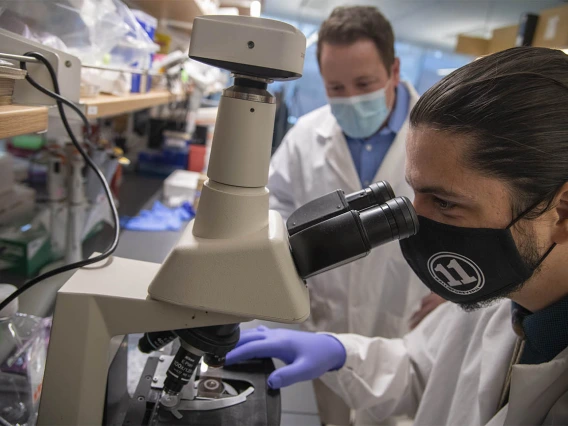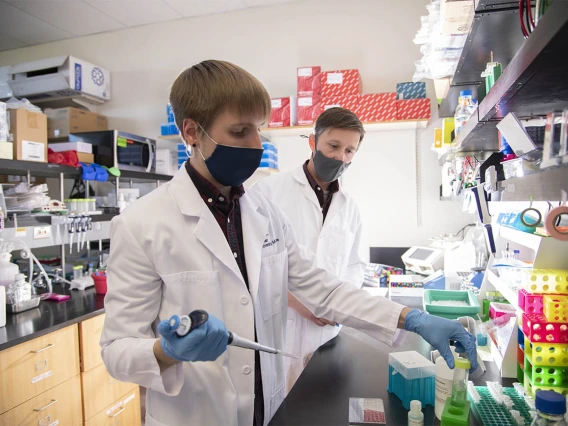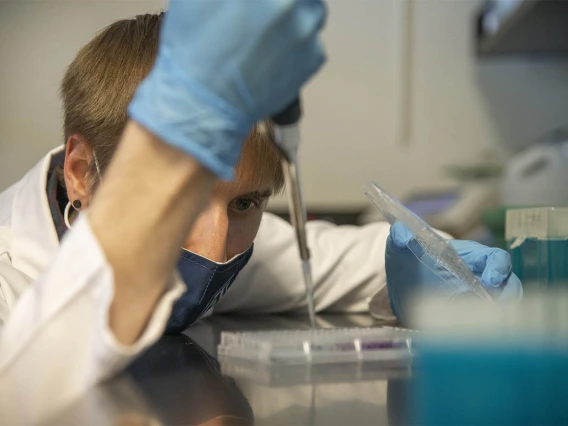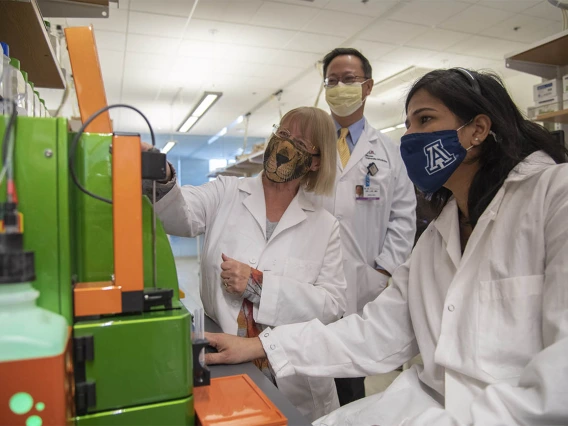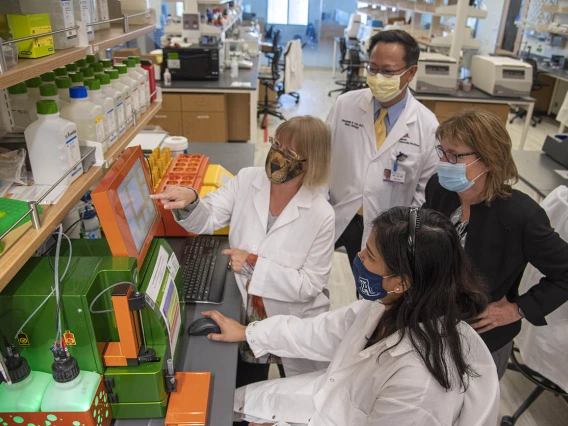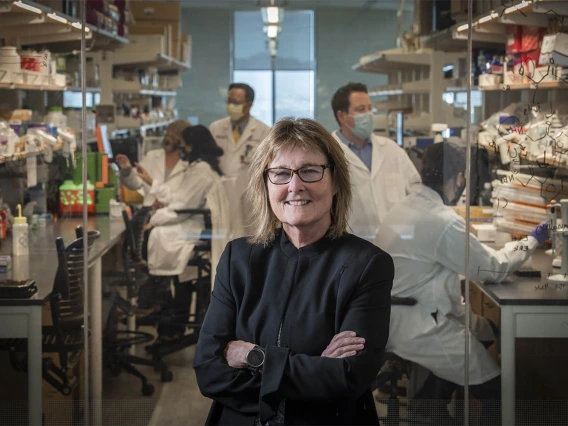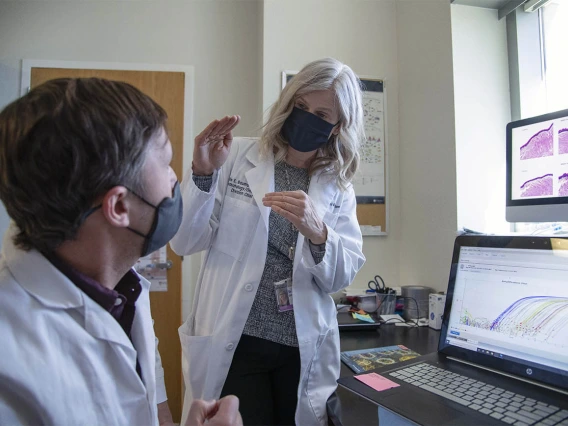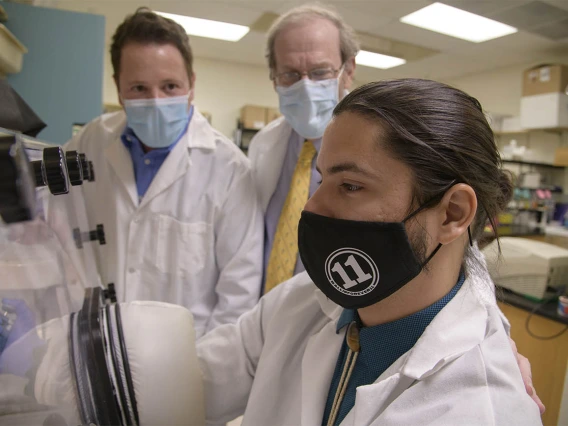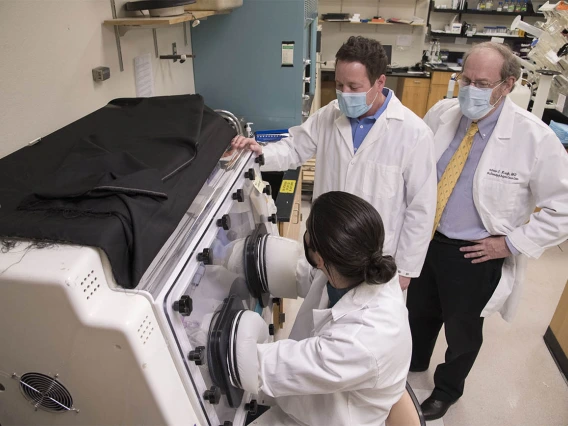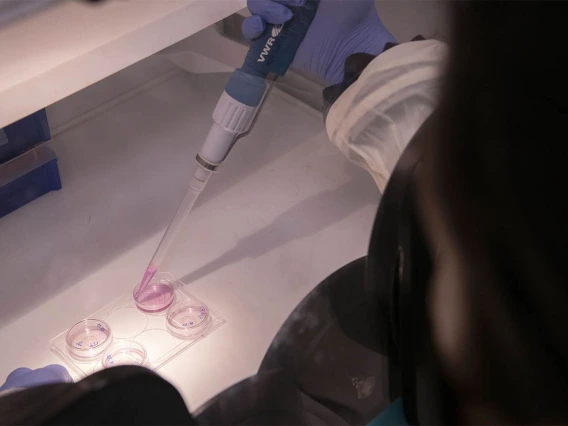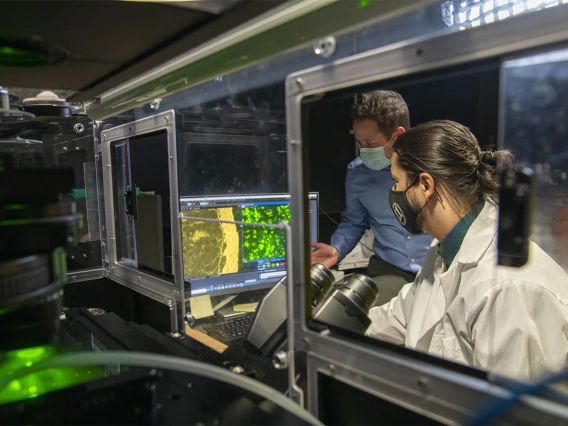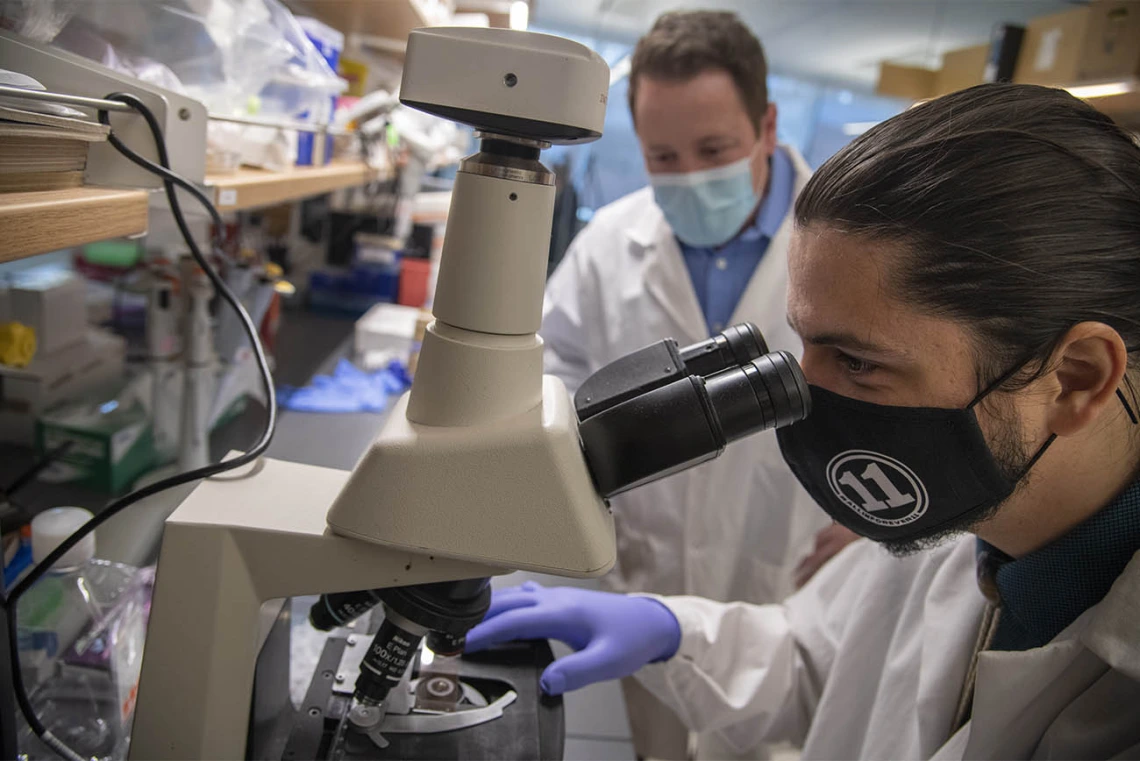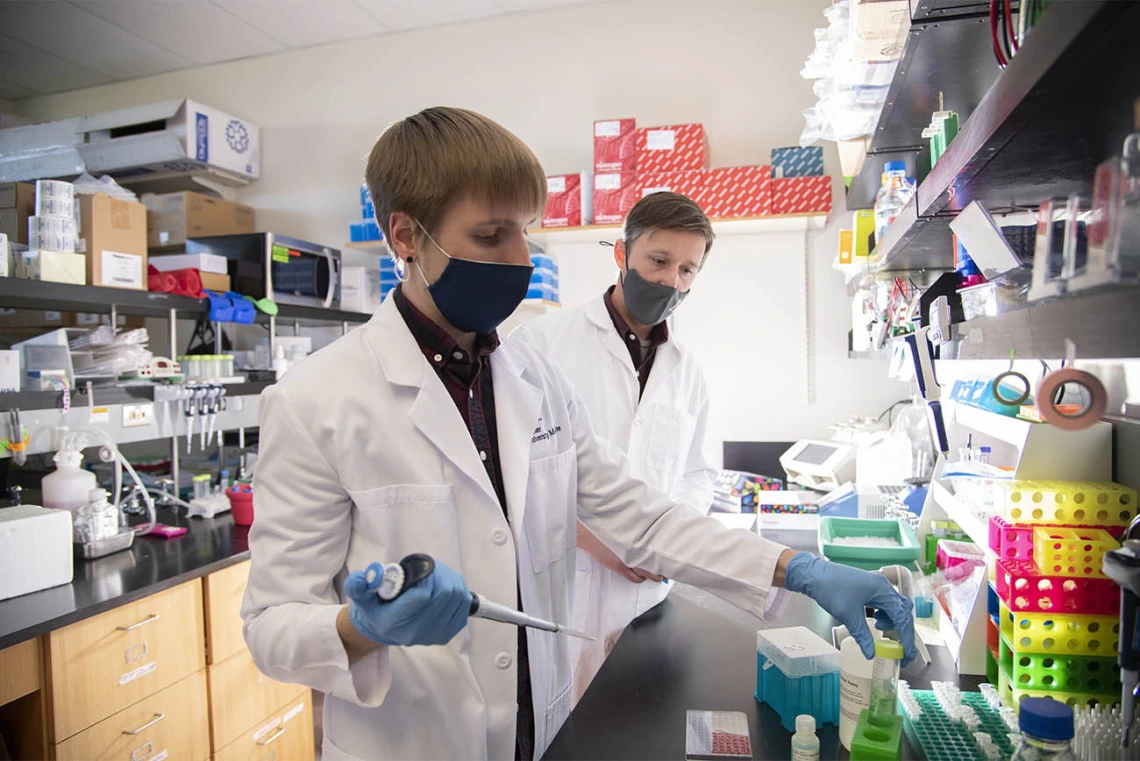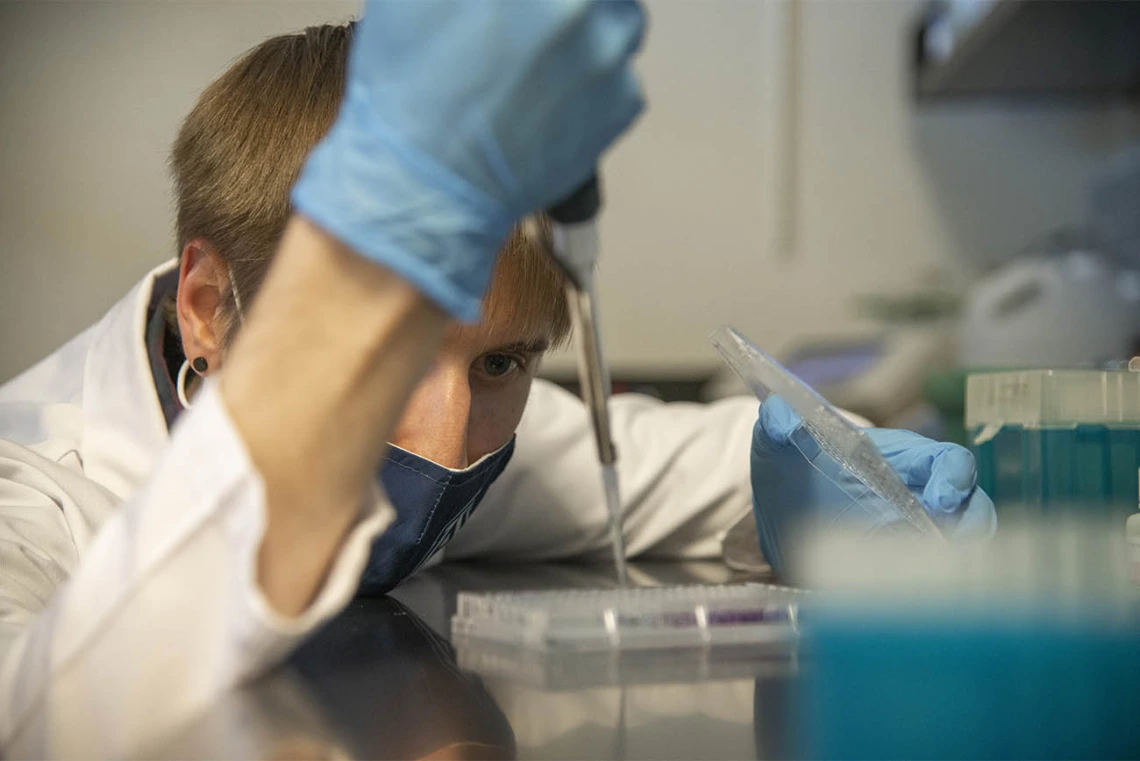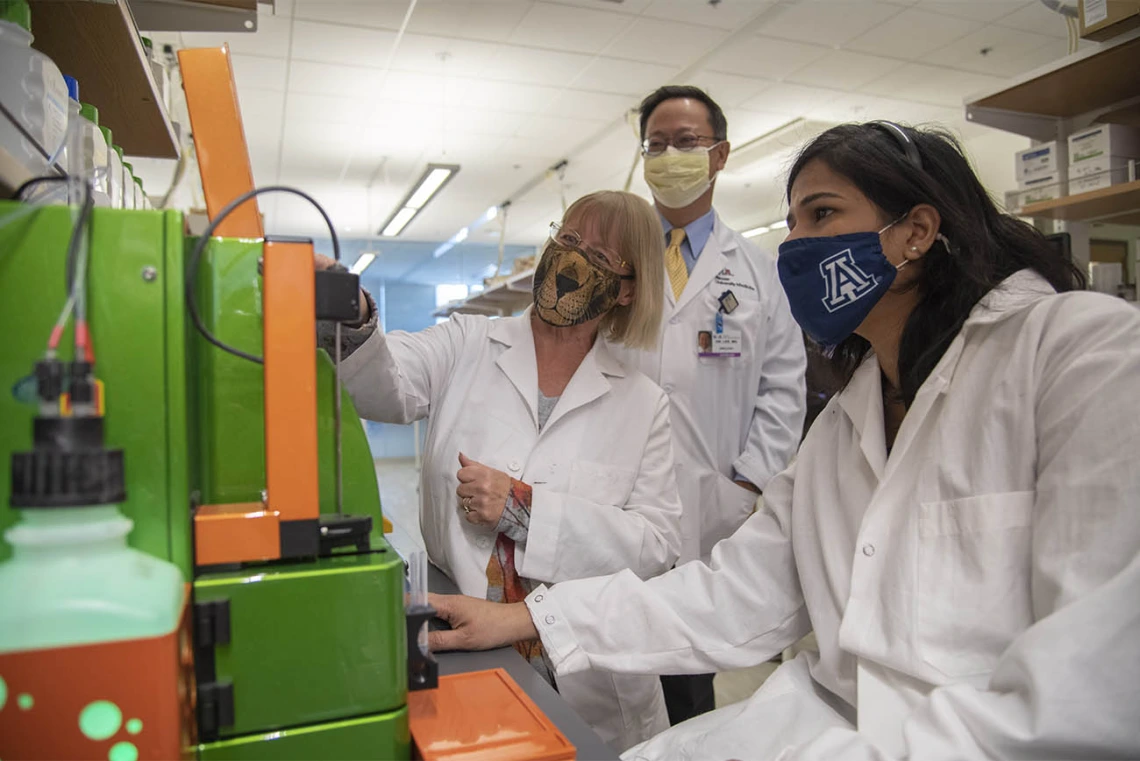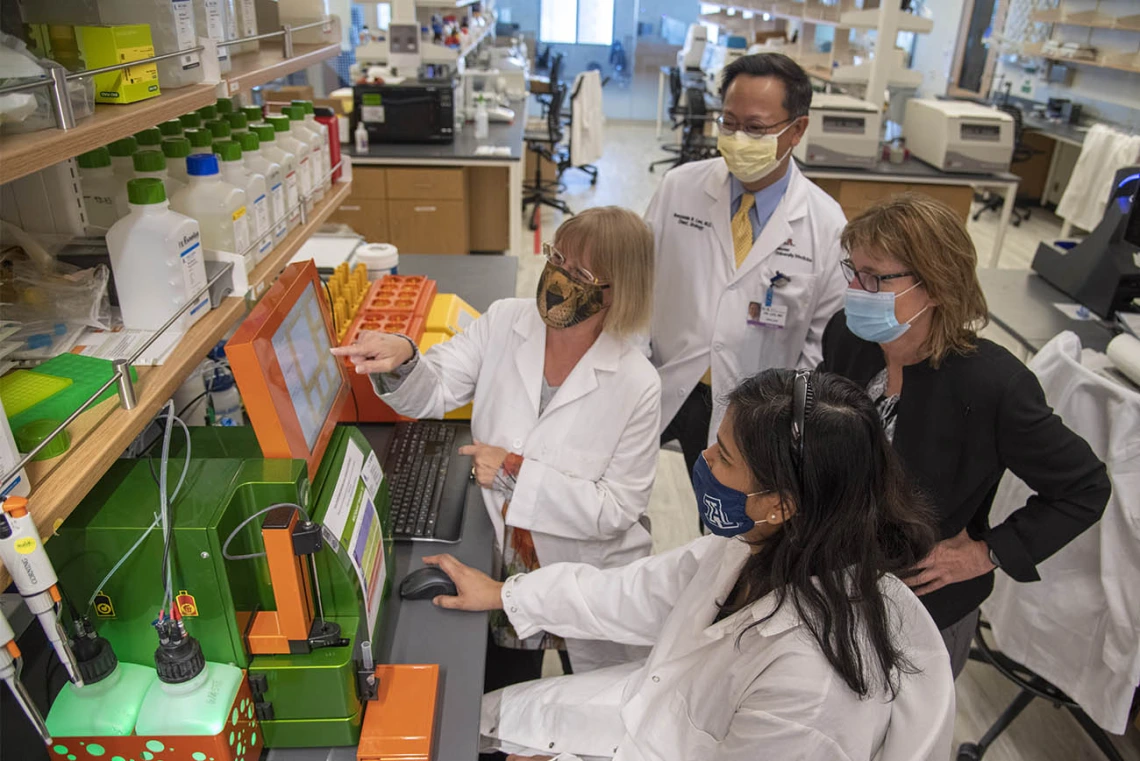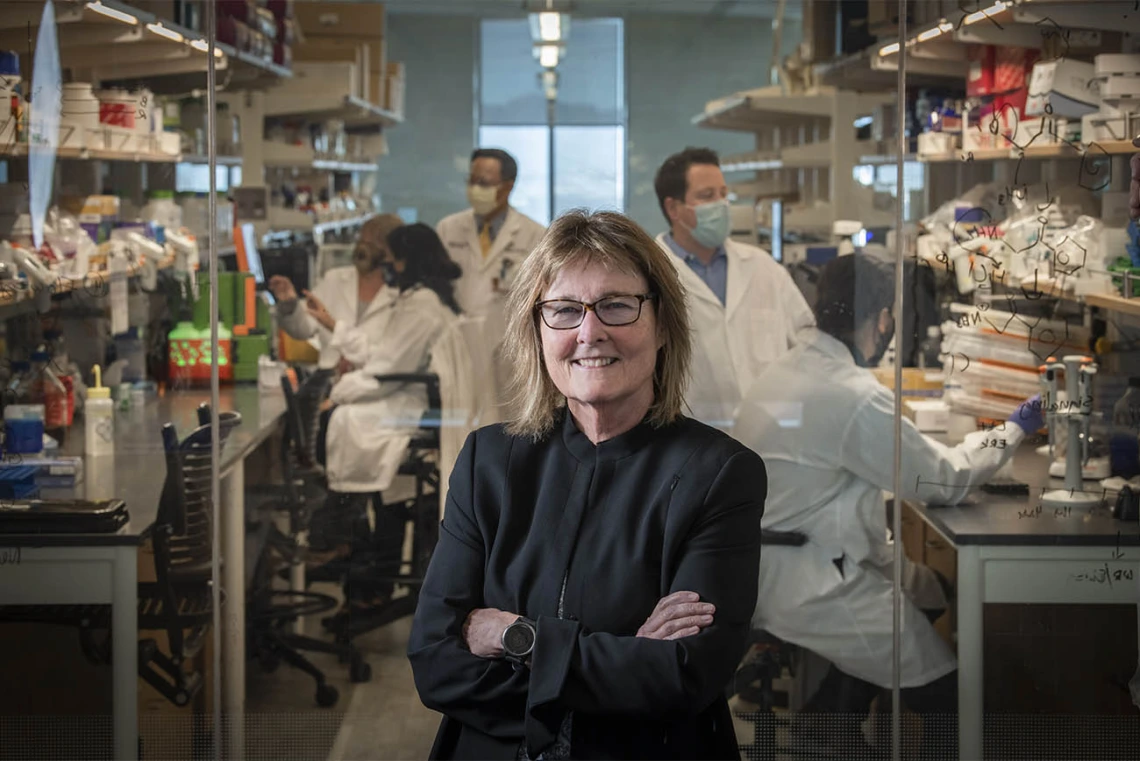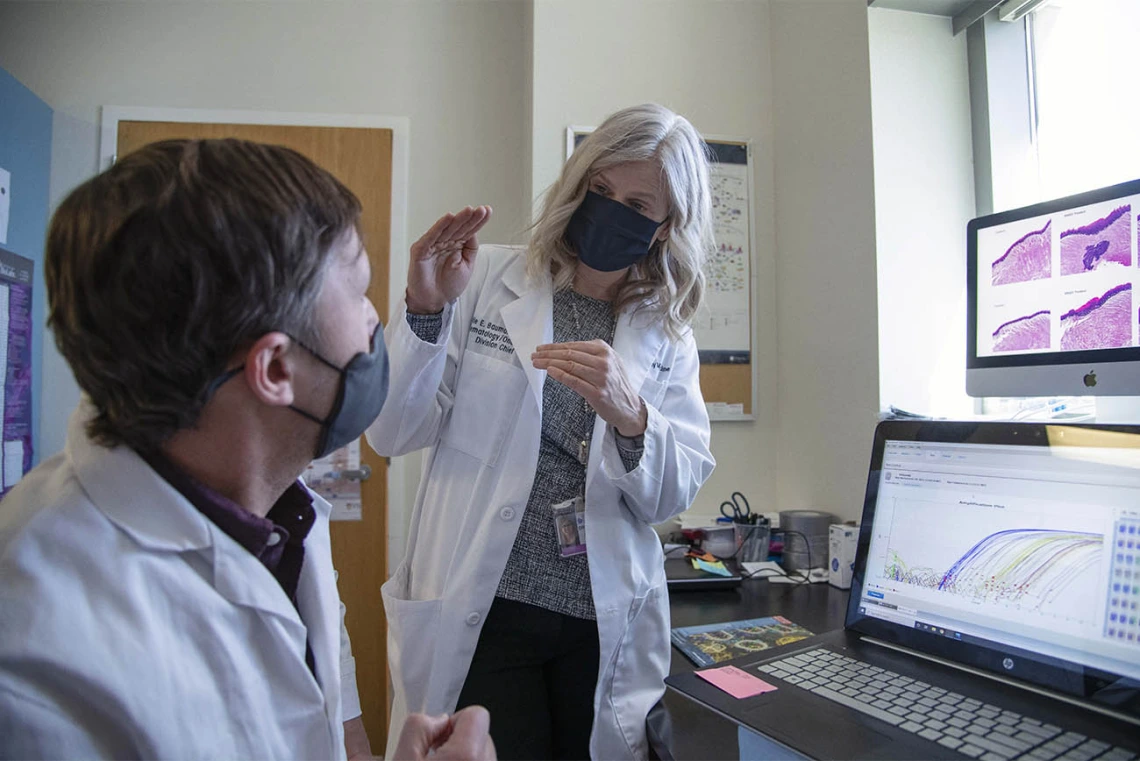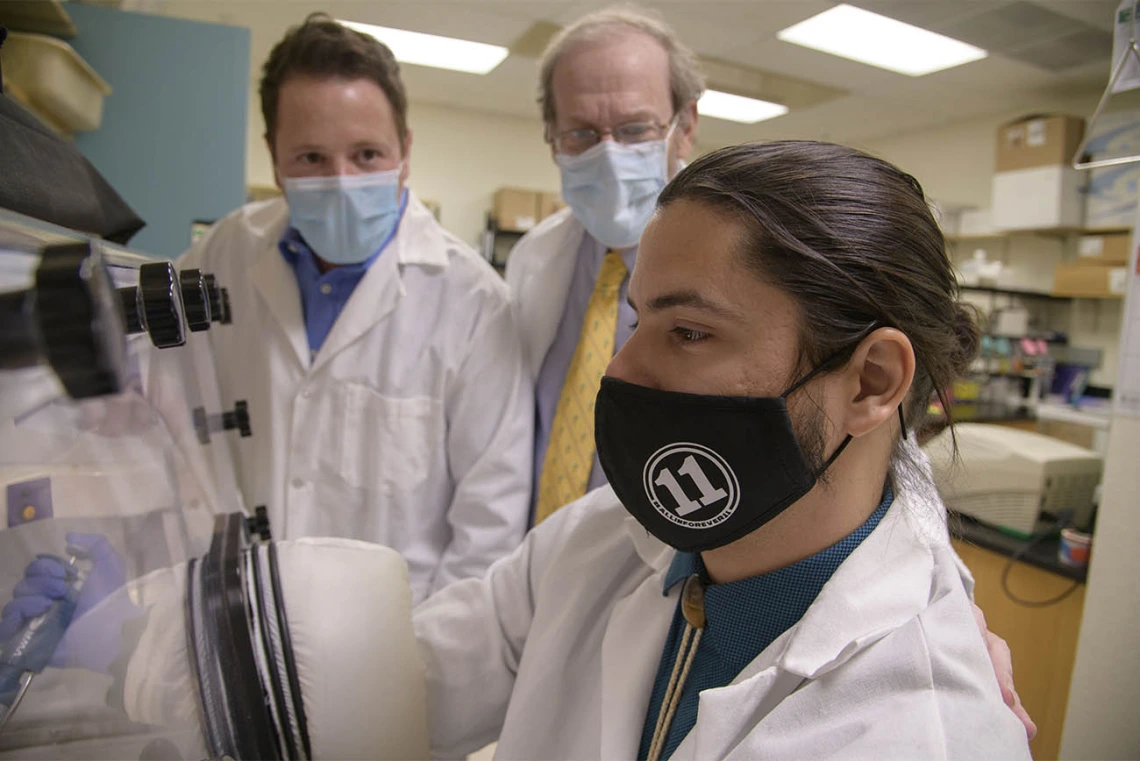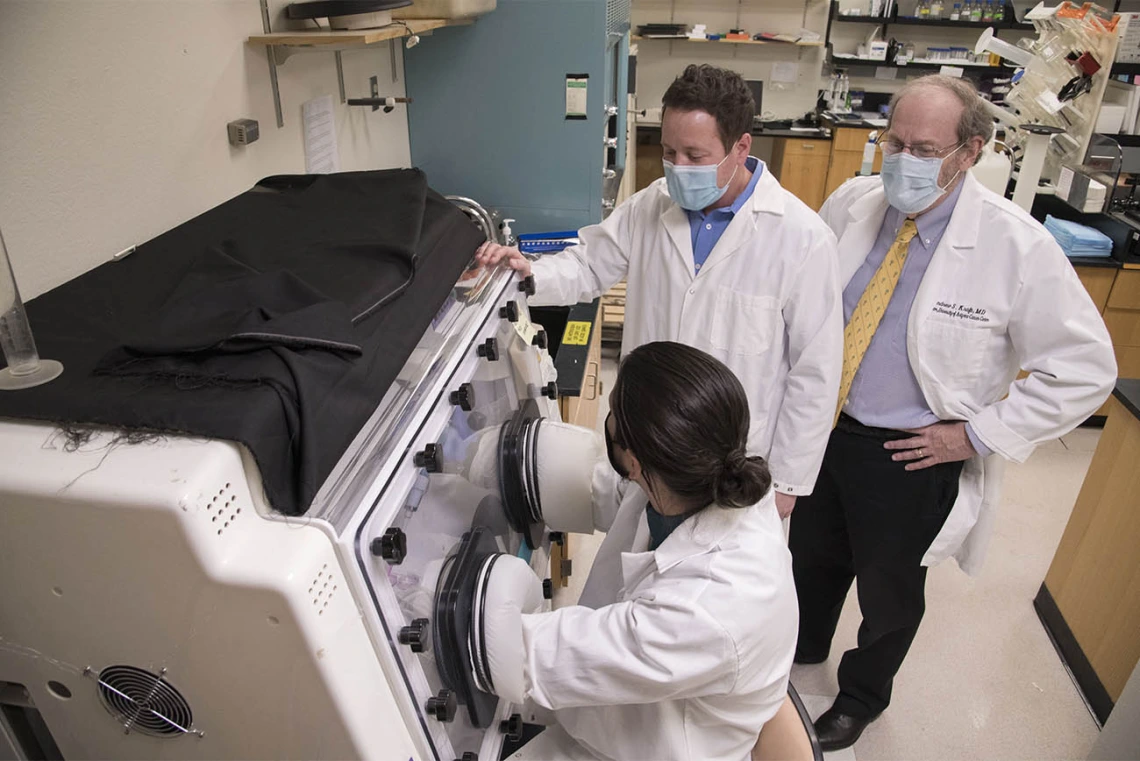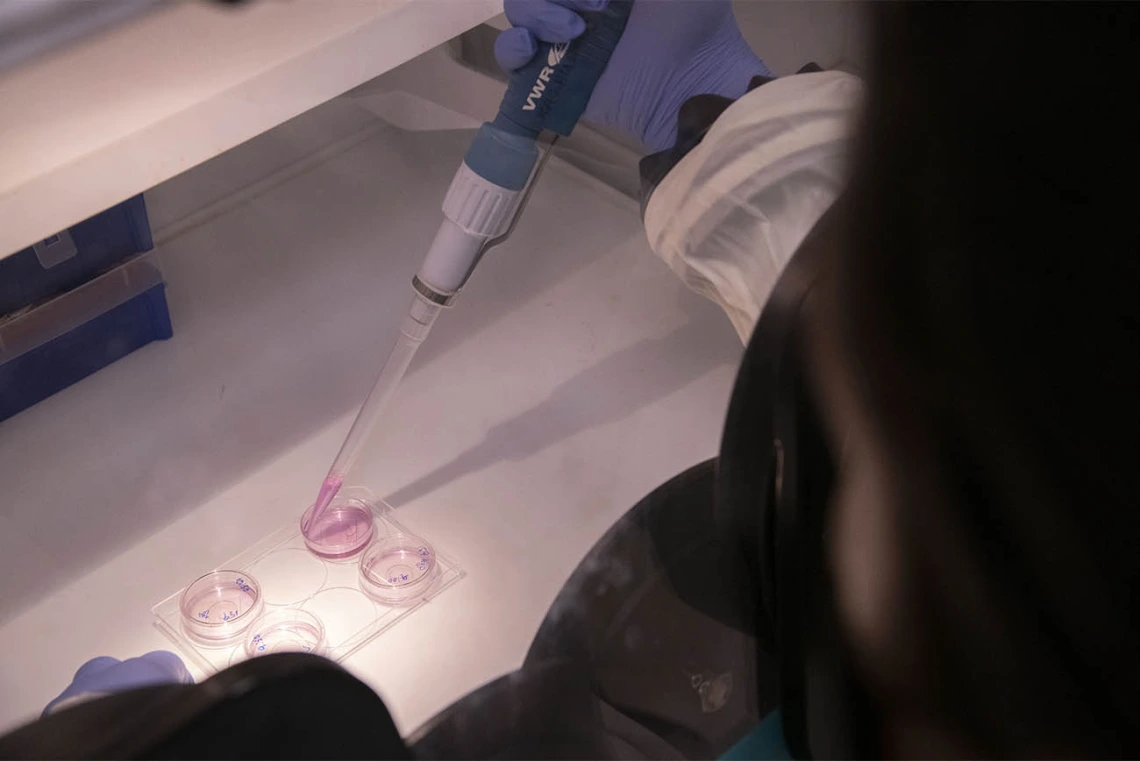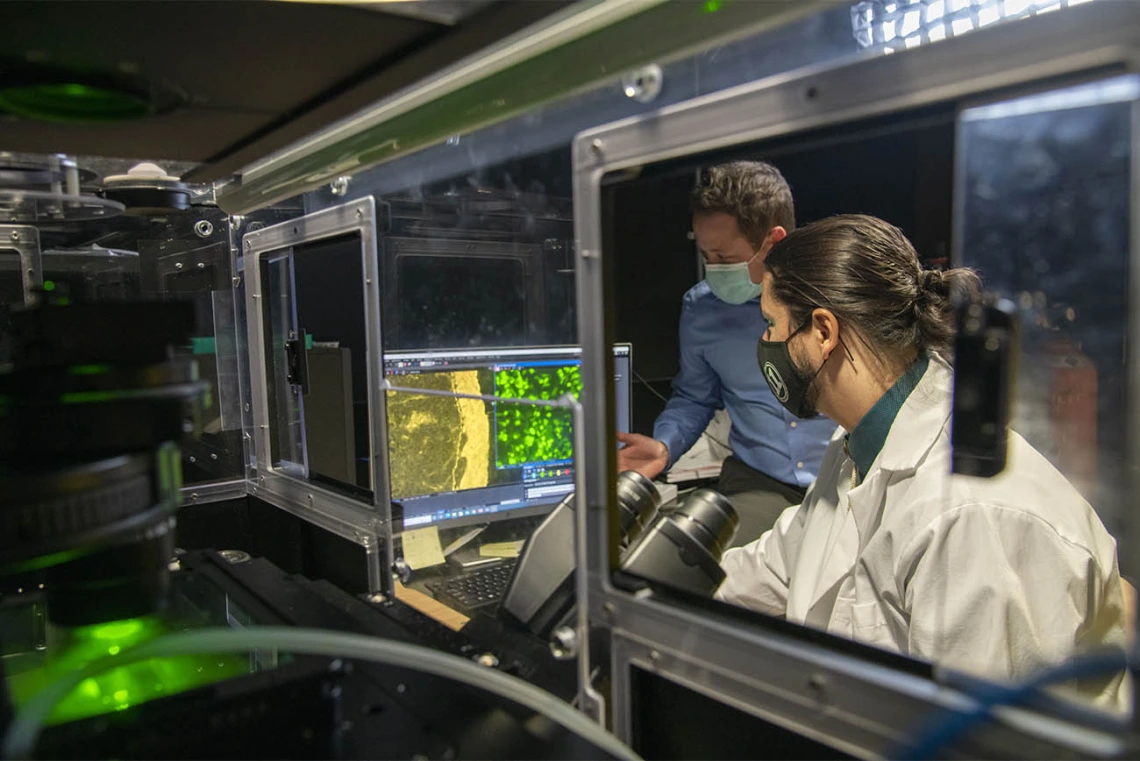Maximizing the Impact of Cancer Research Through Mentorship
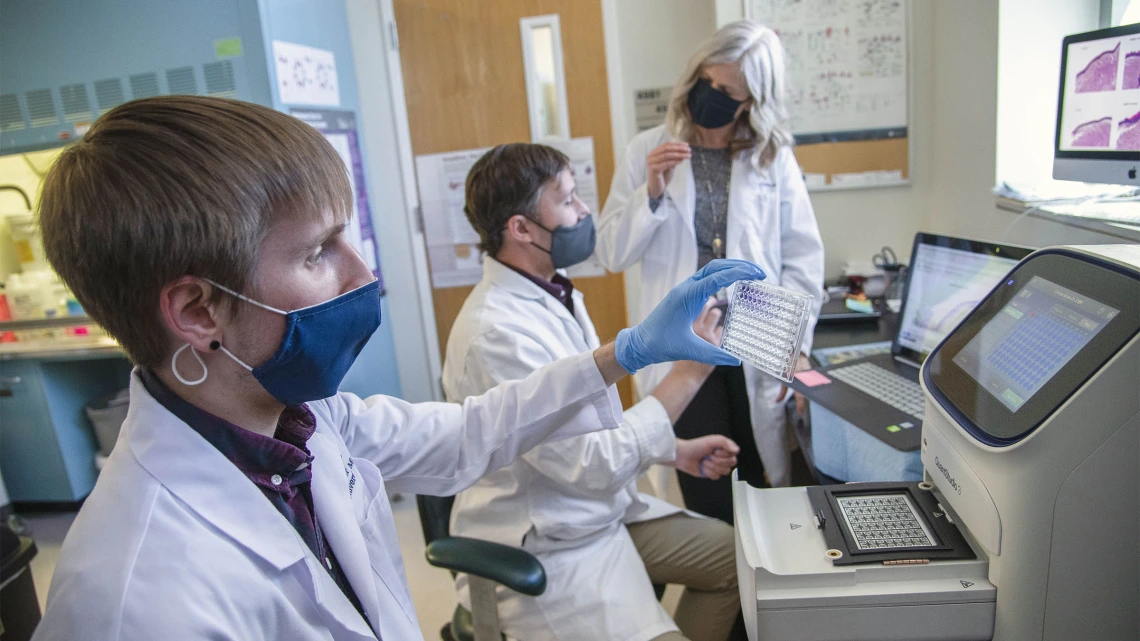
The team of third-year doctoral student Dakota Reinartz, Justin E. Wilson, PhD, and Julie E. Bauman, MD, MPH, is investigating the link between inflammation and cancer.
As part of the Integrative Cancer Scholars training program (ICS), the University of Arizona Cancer Center pairs future translational scientists with mentors who teach them how to bridge the bench and the bedside to maximize the impact and significance of cancer research.
Specifically, ICS scholars choose one basic science mentor and one clinical science mentor from among nationally competitive basic scientists and physician-scientists.
During their training in the lab, mentees acquire new targeted skills under the guidance of nationally recognized basic scientists and physician-scientists, including Anne E. Cress, PhD, a University of Arizona Cancer Center member and senior associate dean for academic faculty and basic science research at the College of Medicine – Tucson.
Three of the six selected scholars were photographed at the UArizona Cancer Center while conducting original research under the guidance of their chosen mentor-pair. The teams featured include:
- Doctoral student Corbin Jensen and mentors Andrew Kraft, MD, director emeritus and professor of medicine, and Noel Warfel, PhD, assistant professor of cellular and molecular medicine at the College of Medicine – Tucson. Jensen is in the cancer biology program, with a project focus of PIM kinases in hypoxia-induced prostate cancer invasion.
- Doctoral student Dakota Reinartz is partnered with mentors Julie Bauman, MD, MPH, deputy director of the UArizona Cancer Center, and Justin Wilson, PhD, assistant professor of immunobiology at the College of Medicine – Tucson and member of the BIO5 Institute. Reinartz is in the immunobiology program, focusing on immune system regulation of inflammation in head-and-neck squamous cell carcinomas.
- Doctoral student Shekha Tahsin is paired with mentors Benjamin Lee, MD, interim department chair of urology, and Cindy Miranti, PhD, professor of cellular and molecular medicine at the College of Medicine – Tucson and member of BIO5. Tahsin is in the cancer biology program, focusing on loss of stromal androgen receptor regulation in prostate cancer.


